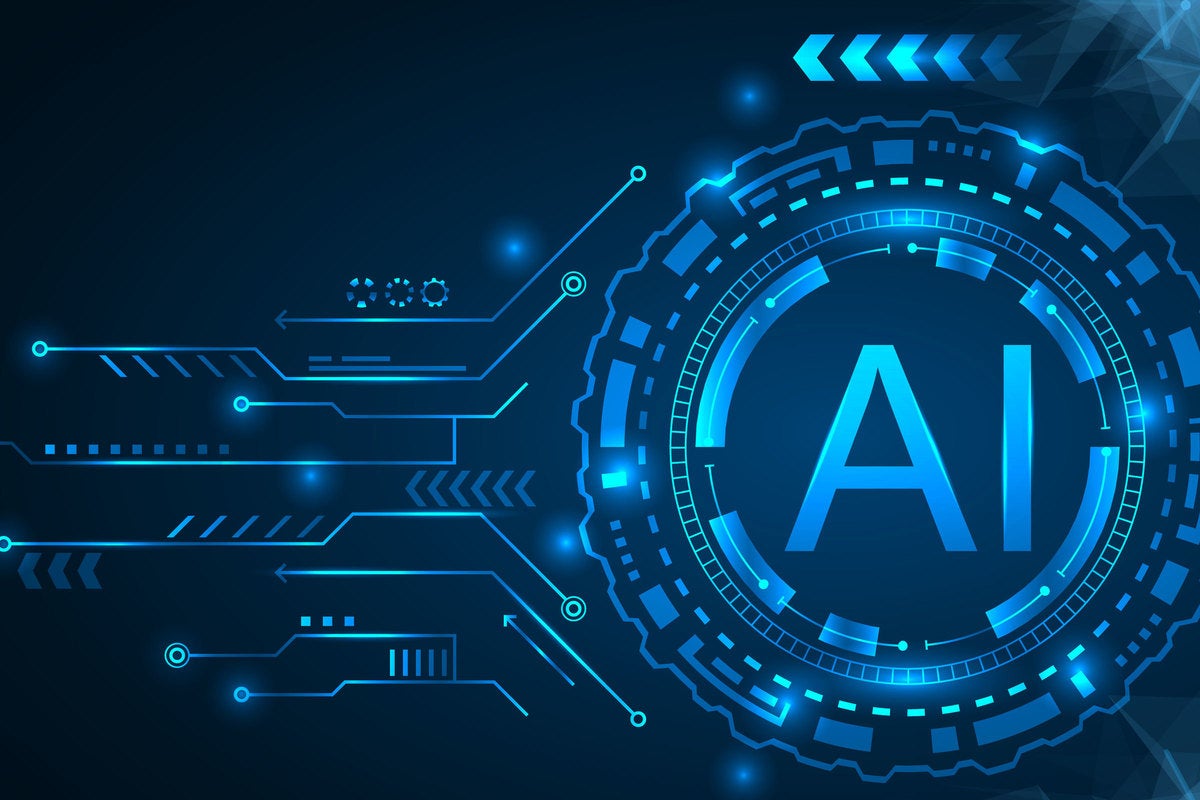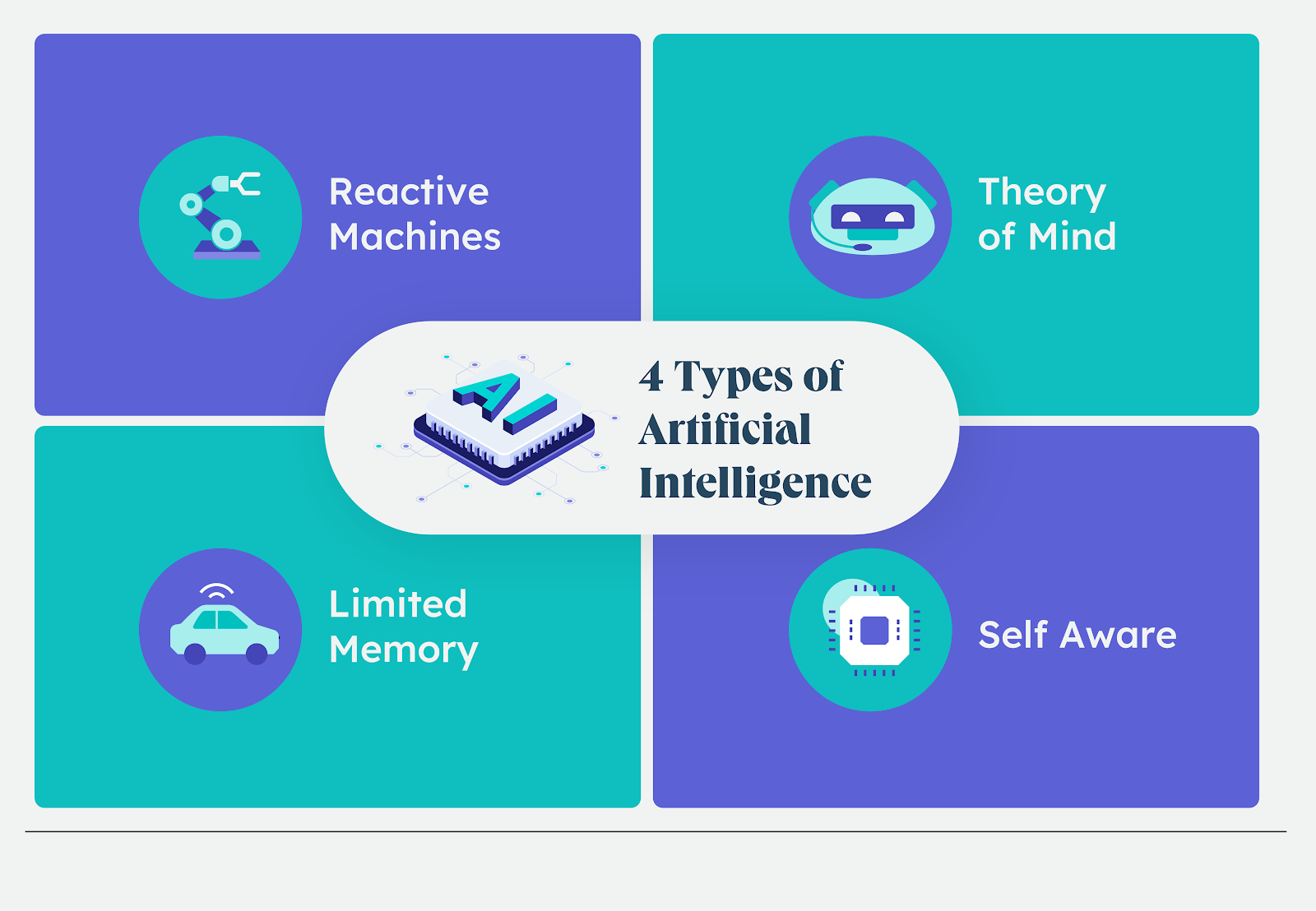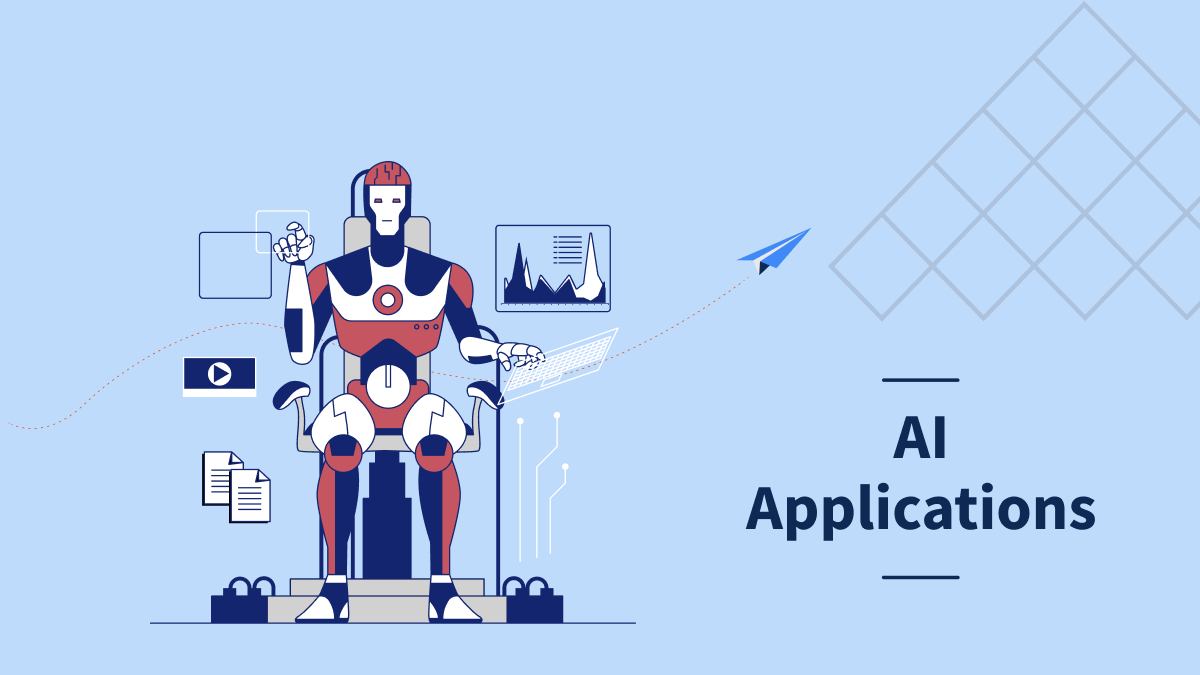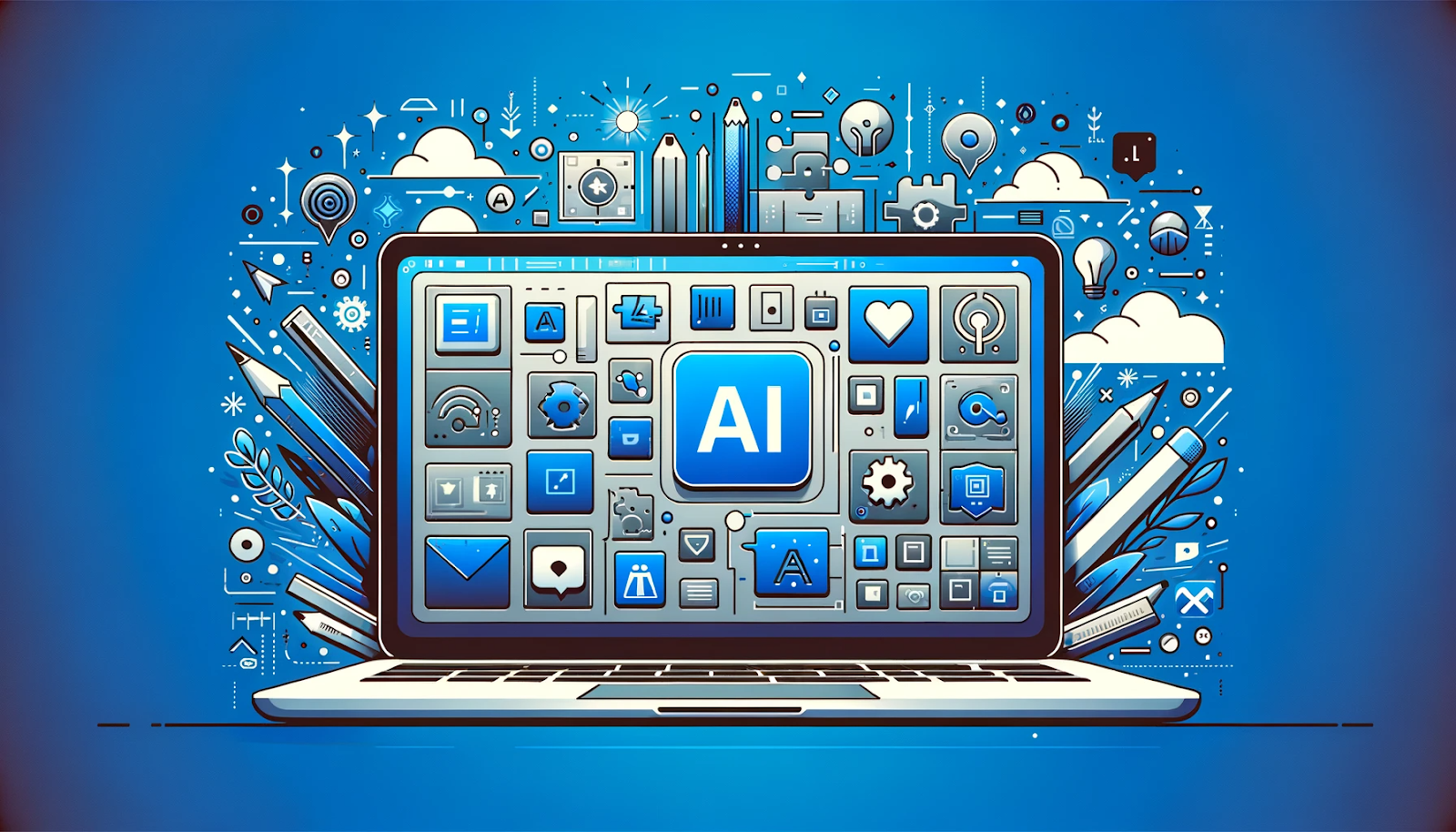Dive into the world of AI with our comprehensive guide! Discover the definition, types, and revolutionary applications of artificial intelligence.
Artificial intelligence (AI) has become a common term in today's landscape. From the moment you unlock your phone with facial recognition to the movie recommendations you receive on streaming services, AI plays a significant role. But what exactly is AI, and how does it function?
What Does AI Mean?

Artificial intelligence–commonly abbreviated as AI–refers to the ability of machines to carry out tasks that would typically require human-like intelligence. AI systems can analyze data, detect patterns, and make decisions based on predefined criteria and real-time information.
One of the most notable functions of AI is learning. AI systems can acquire knowledge and improve their performance through data analysis. For instance, recommendation algorithms on streaming services analyze your watch history to suggest similar content. These algorithms can learn from their users' preferences and provide personalized recommendations that improve with time.
Another essential function of AI is problem-solving. AI techniques enable machines to tackle complex problems by analyzing data and identifying patterns. This can be particularly useful in fields such as healthcare, where AI can assist doctors in diagnosing diseases by analyzing large amounts of medical data.
Furthermore, AI systems can be programmed to make decisions based on predefined criteria and real-time information. For example, self-driving cars use AI to make decisions on the road, such as when to turn or brake.
It's essential to note that while AI exhibits remarkable capabilities, it doesn't replicate full human intelligence. It can only perform tasks it has been programmed to do and is limited by the quality and quantity of data it has been trained on. Nevertheless, AI has the potential to revolutionize many industries and improve our lives significantly.
4 Types of Artificial Intelligence

Artificial Intelligence (AI) is a vast realm encompassing a wide range of technologies with distinct characteristics. Based on their capabilities and functionalities, these technologies can be broadly categorized into four types.
Reactive machines
Machines that react to stimuli in real-time through sensors, cameras, and other sources without depending on past experiences or references are known as reactive machines. They solely rely on their programming to analyze incoming data and generate a response.
Reactive machines are particularly suitable for simple tasks such as object detection, collision avoidance, or basic decision-making in real-time scenarios.
Limited Memory Machines
This form of AI utilizes historical data to arrive at decisions. These algorithms are specifically designed to scrutinize large data sets and identify patterns that can aid in predicting future outcomes.
Limited Memory Machines are exceptionally skilled in processing and analyzing intricate data sets, making them a valuable asset to various industries such as finance, healthcare, and retail. By examining past data, these algorithms can assist organizations in making more informed decisions, reducing risk, and enhancing overall performance.
The Theory of Mind
An advanced AI system can comprehend and interpret the emotions, beliefs, and intentions of other entities like humans or other AI systems.
This is achieved through the use of advanced cognitive processes, machine learning algorithms, and natural language processing techniques, which enable the AI system to analyze and interpret various types of data, such as text, images, and speech, to gain a deeper understanding of the underlying human emotions and motivations.
The Theory of Mind is an important area of research in AI, as it has the potential to revolutionize the way we interact with intelligent machines and improve their ability to communicate and collaborate with humans more naturally and intuitively.
Self-aware AI
The highest level of artificial intelligence is capable of possessing consciousness, self-awareness, and the ability to perceive its environment and make decisions based on that information. It is considered the ultimate goal of AI research, as it would be able to learn and adapt on its own without human intervention.
Self-aware AI can reason, understand emotions, and communicate effectively with humans, making it a highly desirable technology for various fields, including healthcare, finance, and transportation. However, the creation of self-aware AI also raises ethical concerns, as it may surpass human intelligence and become a threat to humanity.
AI in Action: A Multitude of Applications

AI has become a game-changing technology in various sectors, and its impact is not limited to entertainment alone.
In the healthcare industry, AI-powered tools are increasingly used to assist in medical diagnosis, drug discovery, and the development of personalized treatment plans. By analyzing vast amounts of patient data and medical research, AI algorithms can identify patterns and insights that may be missed by human experts, leading to more accurate diagnoses and effective treatments.
The finance sector has also adopted AI algorithms for various purposes, including fraud detection, risk assessment, and algorithmic trading. These techniques enable financial institutions to quickly identify and respond to potential fraud and market risks while also improving trading efficiencies.
In the transportation industry, AI is being used to develop self-driving cars and traffic management systems. Self-driving vehicles have the potential to revolutionize transportation by reducing accidents, traffic congestion, and carbon emissions. Traffic management systems that use AI can optimize traffic flow and reduce travel times, making for a safer and more efficient transportation system.
AI is also making strides in the field of robotics, where it is enhancing automation in manufacturing and beyond. AI-powered robots can perform complex tasks with greater precision and efficiency than humans, resulting in increased productivity and reduced costs.
Finally, AI is transforming e-commerce by powering recommendation systems and customer service. AI algorithms can make personalized product recommendations by analyzing customer data and behavior, increasing customer satisfaction and sales. AI-powered customer service can also respond quickly and effectively to customer inquiries, improving customer retention and loyalty.
Unveiling the World of AI Tools and Services

Artificial Intelligence (AI) is no longer just a theoretical concept but has become a practical reality. In today's world, several AI tools and services are readily available to help us in our daily lives.
- AI-powered chatbots: These virtual assistants can answer customer queries, provide support, and even schedule appointments. Businesses, banks, healthcare providers, and many other organizations use them to improve customer service and streamline operations.
- Machine translation services: Tools like Google Translate can bridge the language gap between users, enabling people who speak different languages to communicate and understand each other more easily.
- AI writers: This type of tool has gained popularity in recent years. This software uses natural language processing algorithms to generate text for various applications, such as news articles, product descriptions, and social media posts. Some examples of free AI writers are ChatGPT, Gemini, and Copilot.
- AI image generators: They can create visual content from textual descriptions. Artists, designers, and marketers often use these tools to quickly and easily generate images and graphics for various purposes. Some popular free AI image generators include Microsoft Designer, Canva, and Leonardo AI.
Conclusion: What is AI? Definition, Uses and Types
As we witness the rapid evolution of AI, it's natural to feel both excitement and worry about its potential impact on society. While we're optimistic about the possibilities that AI can offer, we must address the ethical concerns and ensure responsible implementation for the benefit of all. By using the power of AI responsibly, we can unlock a future filled with innovation and progress that benefits everyone.




















